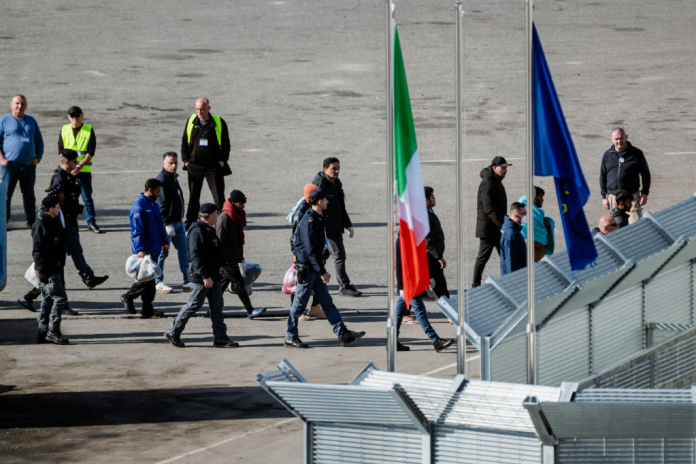Almost half of the migrants transferred from Albania to Italy on 6 February appealed against the rejection of their asylum applications, InfoMigrants reported.
The move came as two migrants died while trying to reach the southern Italian island of Lampedusa. The appeals were filed by some of the 43 migrants who were transferred from Italy to a centre in Albania and then returned back to Italy.
The asylum applications of those migrants, mainly from Bangladesh and Egypt, were rejected. They were given a deadline to appeal, either by the evening of 6 February or 7 February.
After the court overturned their detention orders at the Gjader repatriation centre in Albania, the migrants were transferred to a facility in the Italian port city of Bari. The remaining migrants stayed in Albania for only a few days before an appeals court in Rome suspended their detention pending a ruling by the European Court of Justice (ECJ). The judgement rendered the transfer to Albania ineffective.
Unlike previous cases, the Italian government expected a different outcome due to legal changes shifting jurisdiction of cases from the immigration court to the appeals court.
The key question now is whether Bangladesh and Egypt, the countries of origin of the migrants, can be considered “safe.” According to a decree issued in December, Italy includes these nations on its official list of safe countries. This means that migrants from such regions can be subjected to accelerated asylum procedures and deported more quickly.
Meanwhile, Prime Minister Giorgia Meloni’s decision sparked outrage among Italy’s opposition leaders, enraged, among other issues, by the deportation of an ICC-wanted criminal Osama Njeem Almasri from Italy. Former Prime Minister Giuseppe Conte said the centres in Albania were no different from those already in place in Italy.
The news is filtering out that the Government is falling back on the idea of making the centers in Albania simple CPRs, like those already in Italy, for migrants awaiting expulsion, with the addition that they would go from one side of the Adriatic to the other at our expense and with all the necessary personnel (agents, cultural mediators, health personnel, etc.). Meloni, we warned you in every way: ‘they won’t work!’
